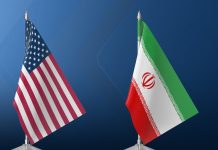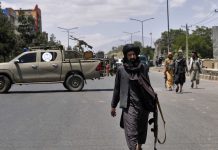Moscow: Armenia is preventing its own stability its stability itself, Darya Grevtsova, a political analyst, deputy director of the Russian Institute for Political Studies, told.
According to Grevtsova, instability in Armenia is due to the upcoming election(parliamentary election in Armenia (to be held on June 20, 2021) will further aggravate, and provocations are possible.
“There are no opposition leaders in the country. The Armenian Prime Minister Nikol Pashinyan is no longer the leader he was before, and he will still have to fight for his place. Moreover, the states that went through the revolution could not boast stability for a long time afterwards,” she said.
The political analyst noted that the trilateral statement (between Armenia, Azerbaijan and Russia) signed on November 10, 2020 (on cessation of hostilities between Armenia and Azerbaijan) should have a positive effect on the welfare of the citizens of Armenia, since new logistics routes, transport corridors will open, infrastructure will begin to develop, new jobs will be opened, and communications will be unblocked.
“All the above aspects should have a positive effect in terms of economic stability, but given revanchist sentiments in Armenia now and the shock of defeat in the (Second Karabakh) war hasn’t yet passed, Armenia is blocking its own stability,” Grevtsova further said.
Besides, according to her, Pashinyan is likely to win the upcoming parliamentary election and will continue to pursue his line.
“Another question is whether he will gain the majority. If not, then he will have to join the coalition. With whom he will join this coalition is also impossible to say for sure. All this will be clear after the election,” the analyst pointed out.
She added that the revanchist sentiments that now prevail in Armenia won’t lead to stability, but instead are fraught with provocations and political destabilization.
“For some, these revanchist sentiments are simply beneficial in the course of the upcoming election,” Grevtsova noted.
The conflict between the two South Caucasus countries began in 1988 when Armenia made territorial claims against Azerbaijan. As a result of the ensuing war, Armenian armed forces occupied 20 percent of Azerbaijan, including the Nagorno-Karabakh region and seven surrounding districts. The 1994 ceasefire agreement was followed by peace negotiations. – Agencies




